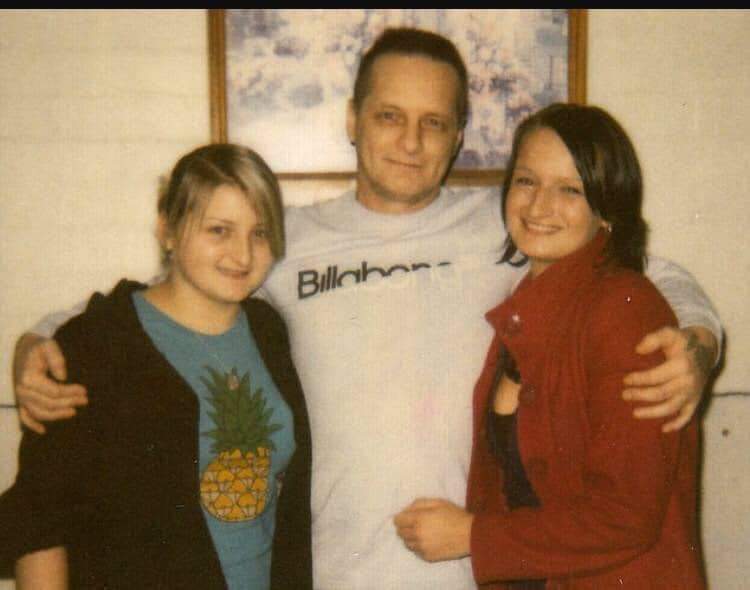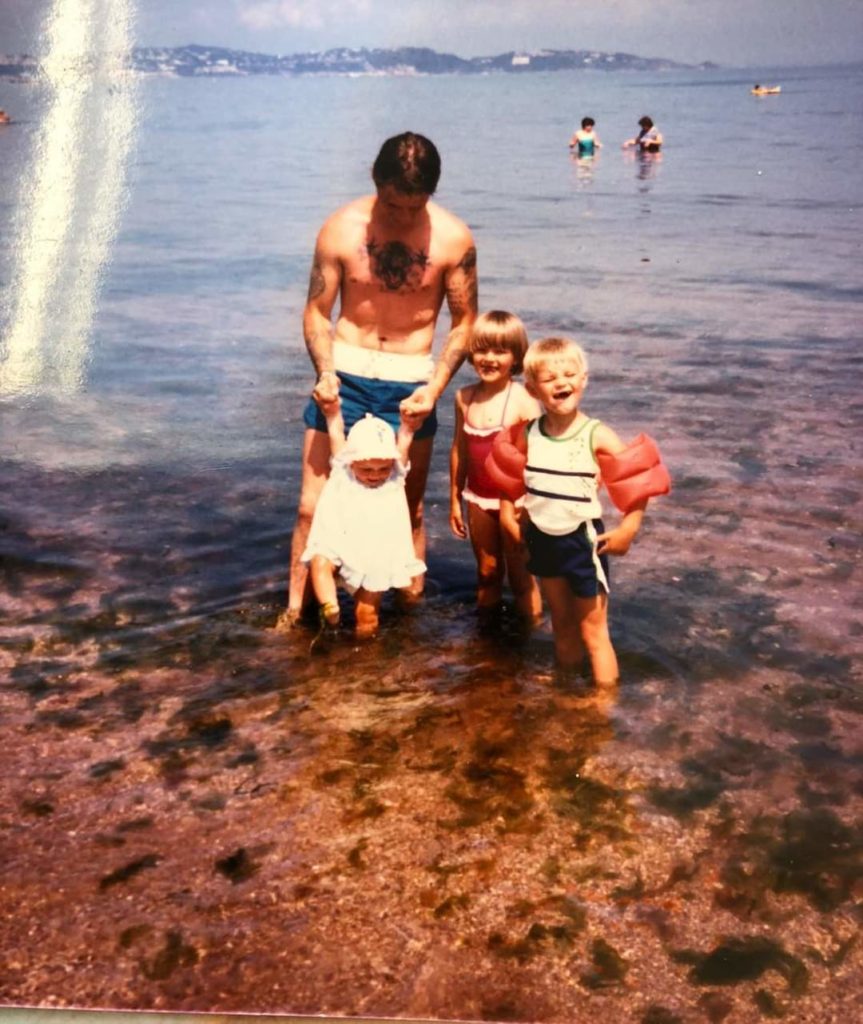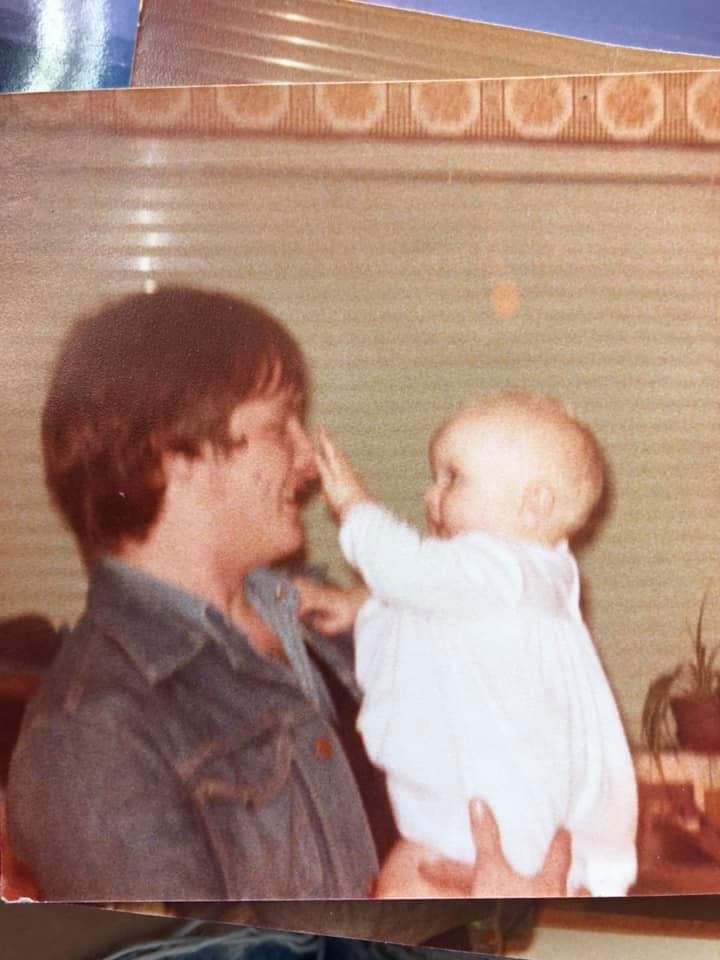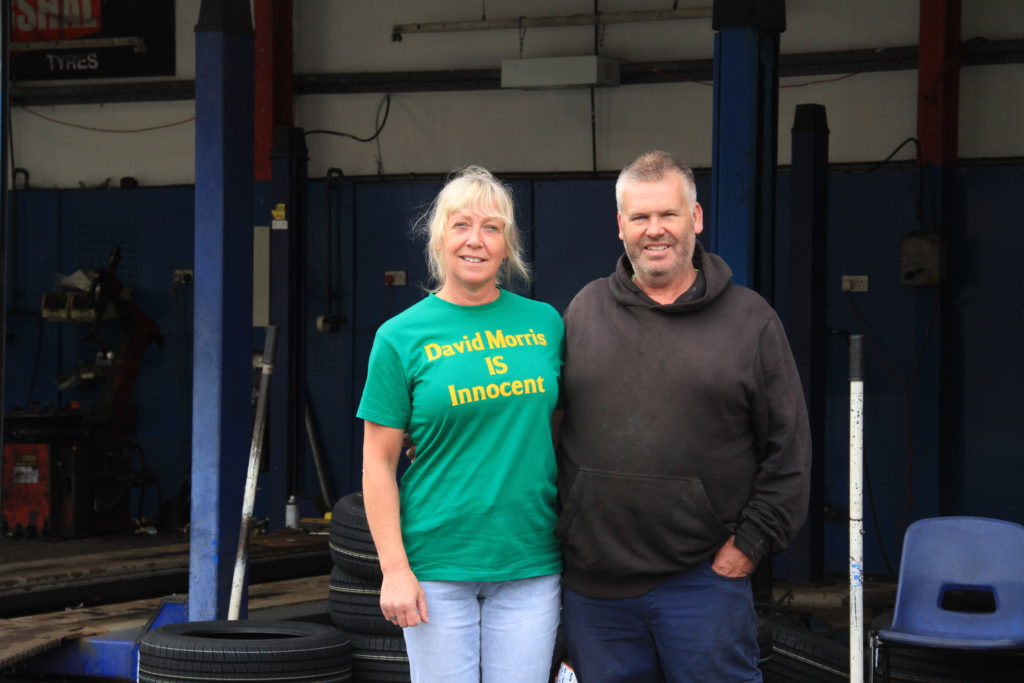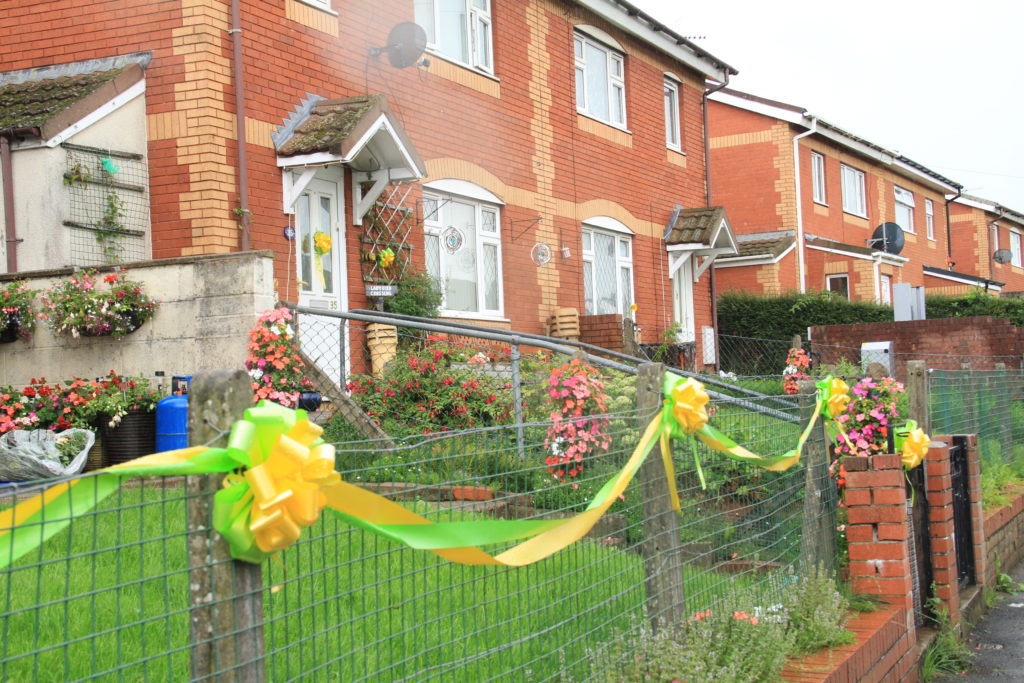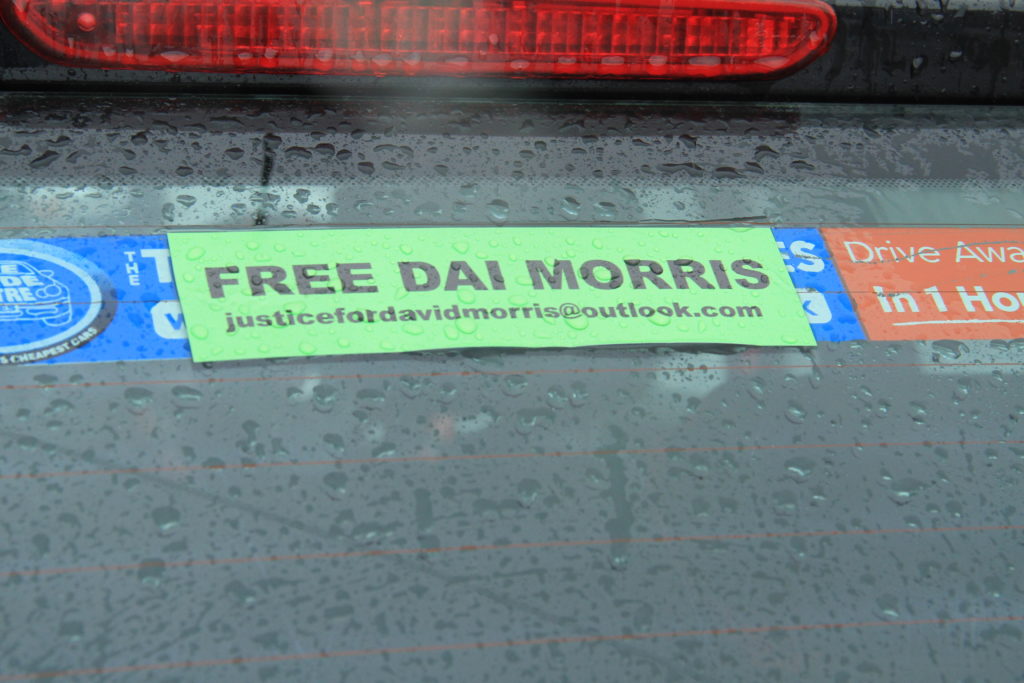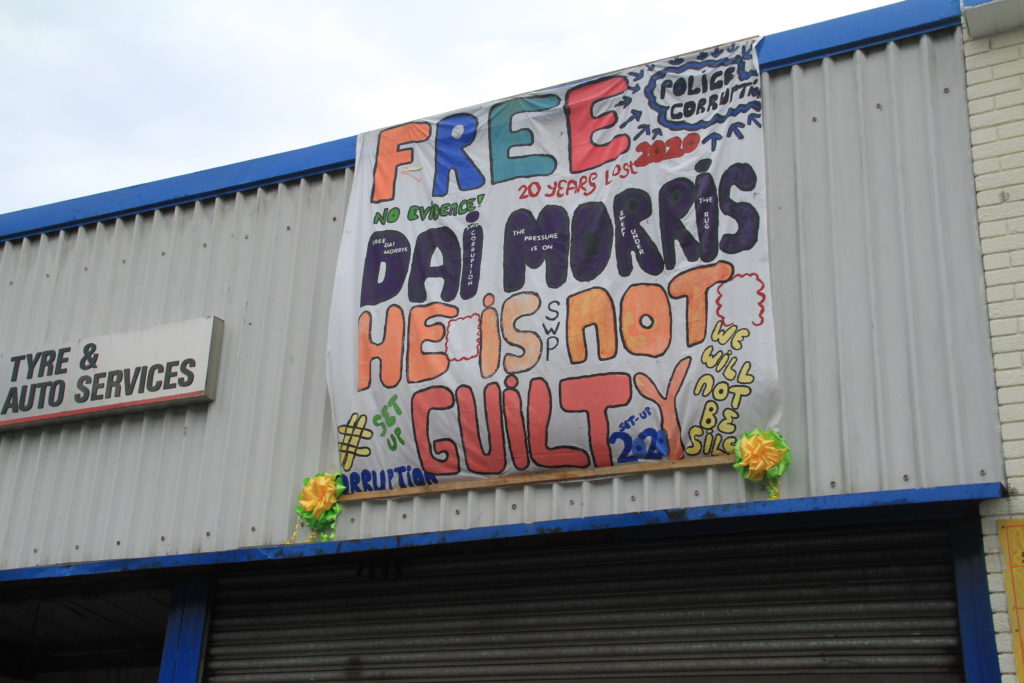Fifteen years after the murder of a Welsh family of four in 1999, an internal police document was disclosed which confirmed public suspicions that the real culprit was someone other than the man convicted of the crime. Was David (“Dai”) George Morris the victim of a wrongful conviction, due to the non-disclosure?
On June 27, 1999, a raging house fire in Clydach awakened some of those living in the small valley town.
No one knew how the fire started. Neighbours were eager to put it out but were unable to do so. Then, the fire services arrived, and a firefighter brought out the first occupant, the body of a young woman. Only later did anyone realise that the burning house was a murder scene.
A family of four living in Clydach, 34-year-old Mandy Power, her 80-year-old invalid mother Doris Dawson, and Mandy’s two daughters Katie 10, and Emily 8, were brutally beaten to death by an attacker wielding a four-foot fiberglass pole.
The murders shocked the entire country.
It took about three weeks to conclude the murder investigation at the house. The longest ever in Wales. Detective Inspector Martyn Lloyd-Evans of the South Wales Police was the senior officer in charge of the case. He told the journalists that there was no trace of evidence (DNA and/or fingerprints) to be found at the crime scene. He claimed that the killer must have erased all traces of their presence.
After 21 months of investigative work, the police approached David (“Dai”) George Morris on the 20 March 2001. Morris was a 38-year old builders’ labourer who was unpopular in Craig-Cefn-Parc, the village where he lived.
The suspect with multiple crime records
Years earlier, during the 1980s, Morris had racked up many convictions which stayed on his record. He had stolen cars, carried out a robbery, and committed other crimes; one of which cost him five years in prison. It was also reported his first wife Wendy divorced him because he had used violence against her, though his sister Debra denied it and Wendy showed her support for his innocence publicly in 2002.
Dai Morris had enjoyed a sexual affair with one of the murder victims, attractive divorcee Mandy Power. But initially, he lied to the police denying that he had enjoyed such an affair, as, he explained later, he did not want his current girlfriend to find out.
On the night of the murder, he claimed that he had walked several miles from a local pub towards his parents’ home in Swansea, but then he changed his mind, and returned to the home he shared with his girlfriend. This meant he had no confirmed alibi for the time of the murders.
Crucially, a gold necklace covered in blood was found at the crime scene at the spot where the greatest violence was belied to have taken place. Morris claimed that he had left the chain in Mandy’s home when he went there on the Friday before the murders to have sexual intercourse with her. This explanation failed to convince either the judge or jury. Morris was found guilty of the murders.
“It was really strange and horrendous,” said Morris’ eldest daughter Janiene, who was 21 years old at the time. She said, “We didn’t expect him to be found guilty.”
Phil Parry, presenter of the BBC panorama program who made a documentary about Morris’ case said, “The police investigation we felt was flawed.”
Dai Morris’ supporters believe that the real culprit(s) lie elsewhere. At the time of the murder, twin-brother police officers involved in the investigation, Stephen Lewis and Stuart Lewis, and Stephen’s then-wife, Alison Lewis, initially became their prime suspects. This was because Mandy was bisexual; while maintaining a sexual relationship with Dai Morris, she also enjoyed a lesbian relationship with Alison. The three were arrested and investigated, but ultimately, they were not charged with the murders.
In 2002, David was sentenced to life imprisonment. Later, he and his new legal aid team applied to the Court of Appeal. After three years of hard work, and with the assistance of the Queen’s Counsel Michael Mansfield QC, he successfully argued that Morris’ trial was unfair because his solicitor, David Hutchison, had a conflict of interest – at the time of Morris’ trial, Hutchison was still representing the Lewis brothers. The Court accepted that Morris had not had a fair trial, and his conviction was quashed. A new trial was then ordered. In 2006, he was prosecuted for a second time, and again he was convicted and sentenced to at least 32 years in prison.
Despite the conviction, Morris, and his supporters, insist he is innocent.
An unexpected lie
When the murder occurred in 1999, John Morris (no relationship to Dai Morris), author of The Clydach Murders: A Miscarriage of Justice, had investigated this case independently for three years. He was a solicitor in Swansea planning to leave the UK to live in Ireland. At that time, he had not been involved in the case. In the following years, he returned to Swansea many times to meet with friends, and this case was a topic that was often discussed.
John Morris explained: “My friends suggested that I should look into the murders to see if I could come up with a definitive answer and write the story. I didn’t want to because the one thing I did know about the murders was that Dai Morris had been convicted of the crimes not once, but twice. Therefore, in my mind, it was pretty certain that he was the murderer.”
Having no access to the police files, John could only use other resources: “I examined the evidence that was available, looking at as much as I could find from the two trials, speaking to witnesses, getting hold of news reports from newspapers.”
Surprisingly, he was soon convinced by the evidence that Dai Morris was innocent because he didn’t believe he could have wiped away all trace evidence of his presence in the house at the time of the murders. He discussed the case in detail with a friend and showed her all the documents he had obtained: “She is a lecturer in forensics, and she’s very high up in her field, very well established. She confirmed, ‘in a case of this brutality, trace evidence is always left behind.
“Now there were no fingerprints and there was no DNA found in the house that belonged to Dai Morris, and this really was a very brutal murder.”
What was even more shocking, however, was that in 2014, Brian Thornton from the Innocence Project in the University of Winchester who was helping Morris with his appeal, found in more than 500 folders of case files from Dai Morris’ former solicitor that the police had discovered DNA during the 1999 investigation, which did not belong to Morris. Not only that, but they also found that an unknown police officer had unlawfully interfered with the HOLMES (Home Office Large Major Enquiry System) database records.
“They lied about it. They said they didn’t have DNA and they didn’t have fingerprints when, in fact, the truth was they did,” John said it was admitted only much later.
“That was when they had no option at a certain stage because they had arrested the three Lewis’ and there was the DNA from one of the Lewis’s that could have been used to prosecute a claim against them.”
“In fact, there was quite a lot of DNA and fingerprint evidence all over the house. It belonged to Stephen Lewis. His fingerprints were even found on the murder weapon. So, the finger of suspicion points firmly at the Lewis’, and away from Dai Morris.”
“DNA was found on the victim’s thigh, which belonged to Alison Lewis. It was also found on the vibrator that was pushed into her vagina.”
“The officer in charge has never explained why he lied to journalists in the first place, claiming there was no DNA or fingerprints.”
John contacted the South Wales Police concerning this point while writing his book but got no response.
They lied about it. They said they didn’t have DNA and they didn’t have fingerprints when, in fact, the truth was they did
John Morrs
The sudden appearance of the DNA made the previous statement of the South Wales police self-defeating. It showed they had lied. Since then, Dai Morris has appealed to the Criminal Cases Review Commission (CCRC) again and again, hoping that his case can be referred to the Court of Appeal. The DNA is required to be retested to establish that it is not his, and thereby prove his innocence. But his appeals have consistently been turned down.
In the former Jeremy Bamber murder which happened in 1985, Jeremy was believed that he had killed five people in the family. CCRC refused to refer his case because it doubted that he tried to put the blame on his sister. This can explain CCRC’s decision on Dai’s case to some extent though Dai’s supporters believe the police corruption is another serious issue.
“I think we have had three fails in the last 10 years,” said Janiene. Now, David and his legal team are preparing to appeal the fourth time.
Failure of the information disclosure
As anyone involved in the criminal cases cannot get access to all the police files before or after the trial unless they give a good reason to get the permission from the court, it is quite difficult for people like Dai Morris to gain useful evidence enabling them to defend themselves, or overturn wrongful convictions when the police investigation was unreliable.
Helen Hignett, formerly a police officer with the Greater Manchester police (2003 to 2016), said: “From everything that I have read, I think it is quite evident that the police have ignored the evidence that is there, and found something that fits their narrative a little bit better, and gone after what fits their narrative.”
“They just wanted to put somebody behind bars that wasn’t related to the police force.”
She shared her experience before: “I witnessed colleagues coax people into admitting they were the perpetrator of a crime, so they could close crimes off. The police force is driven now, by statistics, they want their crimes closed. They want an offender attached to the crime, so the statistics look good.”
“But the reality is, we manipulate the statistics.”
Dr Dennis Eady, one of the leaders in the Cardiff University Innocence Project, said: “We do not have the power to get disclosure from the police or private agencies or government agencies or whatever. So, it is a big problem.
“You cannot get the documents, and without the documents, you cannot make a strong enough case to launch an appeal.
“They are saying if you have got a good reason that has come up, some information has come up. Terefore, you can ask for disclosure. But the whole point of disclosures is to get information in the first place.”
Emily Bolton, the director of APPEAL who worked in the US before, often faces the same situation when working as an attorney in the last 16 years in the UK: “If you want to see inside a police file, you have to tell the police what is inside the police file in order to gain access to it, which is absurd.” This means people must know what exists before they ask for it.
“It makes no sense,” said Emily. She founded the Innocence Project New Orleans in the US before and this organisation successfully quashed 37 convictions. However, in the UK, she only succeeded once, “Practically in the US you cannot investigate a miscarriage of justice without combing through the entire police files with great care to determine whether any material that should have been disclosed previously it was, in fact, disclosed. Without that review, you cannot overturn wrongful convictions.”
Furthermore, no one can obtain the court transcripts after the trials when they appeal unless they get permission from the court and pay a large sum of money. Most of the time, the price will be thousands of pounds.
Another alleged victim of wrongful convictions, Edward Philips, described the process of getting the transcripts: “No one is allowed to take a tape recorder into court, so the only one is the one made by the official Court. And that gets lodged with the court.
“There are about 20 different transcription companies that make money out of producing these transcripts. So, you say you want a transcript, they will not give you the audio recording, but they will give you the name and address of these companies. And say, you have to write to get permission from the court, from the judge. You then have to write to the company, saying you’ve got permission, and then they will send you back. The whole thing takes weeks.
“This system has been the same since the 1970s.”
All of these aspects indicate that the criminal justice system is broken, including the section of the appeal. In fact, many people still believe David is guilty whilst they admit the police made so many technical errors. Michael O’Brien is one of the Cardiff Newsagent Three who quashed his murder conviction in 1999 and he is one of David’s supporters. On the 16 July 2020, someone calling themselves ‘Shezza Shazza’ abused Michael online and said he and David Morris were definitely killers and argued: “no police officer would cover up for another police officer regarding such a savagely brutalized with an iron pole.” They are afraid that David may escape from the punishment he deserves just because of the broken system.
No one knows what really happened on the night in 1999. Maybe David Morris is a killer, or maybe he is just a victim of a wrongful conviction. However, witnessing David’s case progress in the last 22 years, a Pontypridd resident Catheria Coleman said she had no confidence in the legal system now and feel “every single British person in the UK should be concerned about this.”
Nowadays, there are more than 20,000 people in the DAVID GEORGE MORRIS Facebook group, which was established ten years ago, to support David. In December 2019, there was a protest in Swansea called ‘Free Dai Morris’, and they plan to have another this year. Dai’s families are searching for more evidence and trying their best to arouse the people’s attention, hoping it can push the CCRC to refer the case at last, though they feel the hope is slim.
Janiene said: “We kind of with anything we can really to just get people involved and get the case out there, so people can read and see it for themselves.
“We have got to keep thinking positively and keep trying, because what the alternative is giving up and just letting things go on. I know we are never going to be able to do that.”
(Edward Philips is an alias.)
